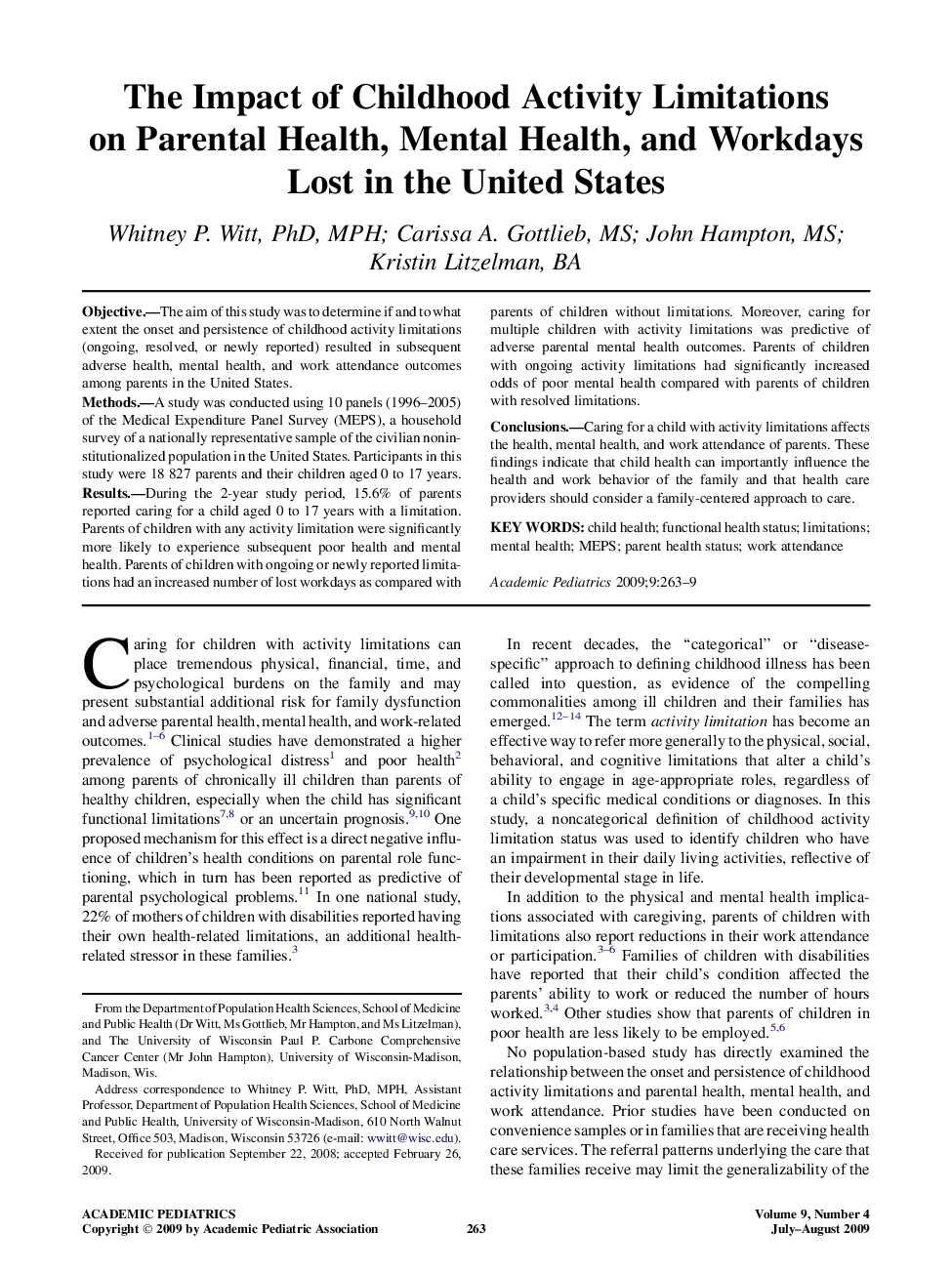| Article ID | Journal | Published Year | Pages | File Type |
|---|---|---|---|---|
| 4140188 | Academic Pediatrics | 2009 | 7 Pages |
ObjectiveThe aim of this study was to determine if and to what extent the onset and persistence of childhood activity limitations (ongoing, resolved, or newly reported) resulted in subsequent adverse health, mental health, and work attendance outcomes among parents in the United States.MethodsA study was conducted using 10 panels (1996–2005) of the Medical Expenditure Panel Survey (MEPS), a household survey of a nationally representative sample of the civilian noninstitutionalized population in the United States. Participants in this study were 18 827 parents and their children aged 0 to 17 years.ResultsDuring the 2-year study period, 15.6% of parents reported caring for a child aged 0 to 17 years with a limitation. Parents of children with any activity limitation were significantly more likely to experience subsequent poor health and mental health. Parents of children with ongoing or newly reported limitations had an increased number of lost workdays as compared with parents of children without limitations. Moreover, caring for multiple children with activity limitations was predictive of adverse parental mental health outcomes. Parents of children with ongoing activity limitations had significantly increased odds of poor mental health compared with parents of children with resolved limitations.ConclusionsCaring for a child with activity limitations affects the health, mental health, and work attendance of parents. These findings indicate that child health can importantly influence the health and work behavior of the family and that health care providers should consider a family-centered approach to care.
